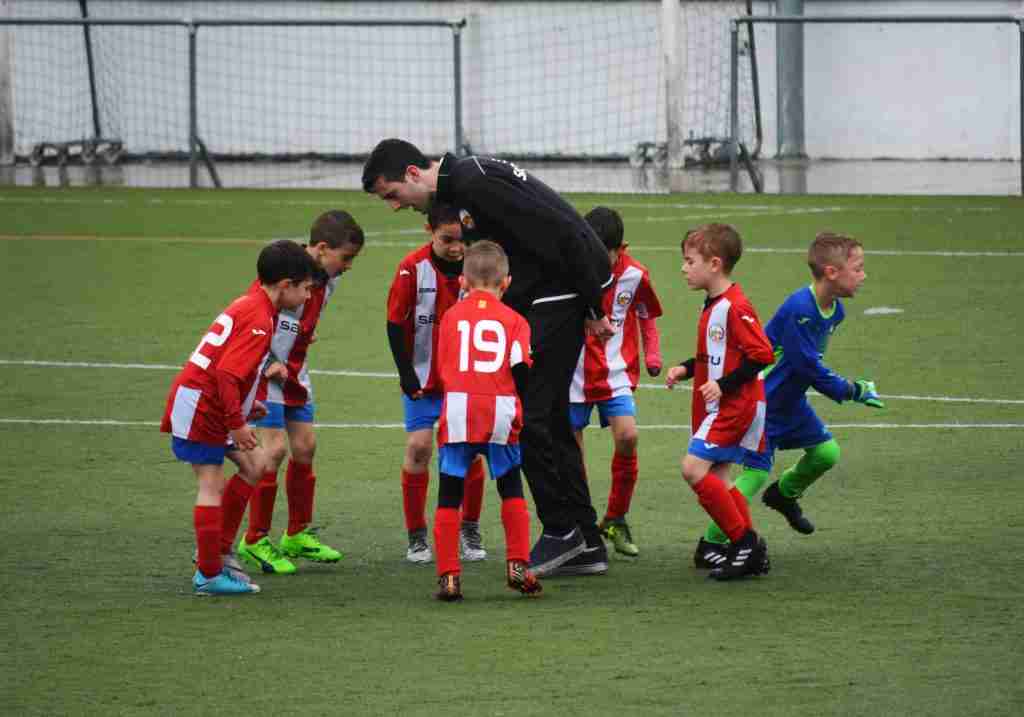Soccer clubs hold a significant influence within their communities, garnering support and adoration from fans all over the world. But beyond scoring goals and winning championships, what social responsibilities do these clubs have? From promoting inclusivity and diversity to investing in grassroots development programs, this article explores the various ways in which soccer clubs can make a positive impact off the field. Whether it’s supporting charitable initiatives or tackling social issues head-on, soccer clubs have the power to be a force for good in society.
Community Engagement
Youth Development Programs
Soccer clubs have a crucial role to play in fostering the growth and development of young players. Through youth development programs, clubs can identify and nurture talented individuals, providing them with the coaching, facilities, and opportunities needed to thrive in the sport. These programs not only help to produce future stars but also contribute to the overall development of youth by teaching them important life skills such as teamwork, discipline, and perseverance.
Promoting Inclusivity in Soccer
Inclusivity should be a core value for soccer clubs, ensuring that people from all backgrounds, regardless of race, gender, or socioeconomic status, are welcomed and given equal opportunities to participate in the sport. By actively promoting inclusivity, clubs can inspire a sense of unity and belonging within their communities, breaking down barriers and fostering a sense of empowerment among individuals who may have previously felt excluded.
Supporting Local Charities and Nonprofits
Soccer clubs should recognize the significant impact they can have on their communities through philanthropic efforts. By partnering with local charities and nonprofits, clubs can contribute to important social causes such as education, healthcare, and poverty alleviation. Through fundraising events, donations, and volunteer programs, clubs can leverage their resources and influence to make a positive difference in the lives of those in need.
Environmental Sustainability
Reducing Carbon Footprint
In today’s world, environmental sustainability is a pressing issue. Soccer clubs have the opportunity to lead by example and adopt sustainable practices that reduce their carbon footprint. This can include initiatives such as using energy-efficient lighting systems, implementing recycling programs, and investing in eco-friendly transportation options. By doing so, clubs can inspire their fans and communities to adopt similar practices and contribute to the collective effort of combating climate change.
Promoting Recycling and Waste Management
Proper waste management is essential for preserving the environment and preventing pollution. Soccer clubs can play a vital role in promoting recycling and waste management practices both within their operations and at their stadiums. By providing clear recycling bins, educating fans about sustainable practices, and minimizing single-use plastics, clubs can significantly reduce the amount of waste generated during matches and other events.
Adopting Renewable Energy Sources
Harnessing renewable energy sources such as solar power or wind turbines can significantly reduce a soccer club’s reliance on fossil fuels and lower their carbon emissions. By investing in renewable energy infrastructure and adopting sustainable energy practices, clubs can contribute to the transition towards a cleaner and more sustainable future. Additionally, clubs can serve as a role model for fans and other sports organizations, encouraging them to follow suit and embrace renewable energy solutions.

Safeguarding Player Well-being
Physical and Mental Health Support
Soccer clubs have a responsibility to prioritize the physical and mental well-being of their players. This includes providing access to high-quality healthcare services, as well as mental health support programs. By investing in sports medicine facilities, hiring qualified medical staff, and offering mental health resources, clubs can ensure that their players are provided with the necessary support to maintain their overall well-being.
Player Safety and Injury Prevention
Ensuring the safety of players should be of utmost importance to soccer clubs. This involves implementing stringent safety protocols, adhering to proper training techniques, and investing in top-notch equipment. By prioritizing player safety and taking proactive measures to prevent injuries, clubs can create an environment where players feel protected and can perform at their best without unnecessary risks.
Anti-Doping Initiatives
Soccer clubs must actively participate in anti-doping initiatives to uphold the integrity of the sport. By implementing comprehensive anti-doping programs, clubs can ensure fair competition and protect the health and well-being of players. This includes regular drug testing, educational programs, and collaborating with relevant authorities and organizations to combat and deter the use of performance-enhancing substances.
Promoting Fair Play
Ethical Conduct of Players and Staff
Maintaining high standards of ethical conduct is essential for soccer clubs in promoting fair play. Clubs should instill values of honesty, integrity, and respect among their players and staff members. This includes encouraging fair play on the field, discouraging unsportsmanlike behavior, and enforcing strict codes of conduct to address any violations. By setting a positive example, clubs can foster a culture of fairness and integrity within the broader soccer community.
Eliminating Discrimination and Abuse
Soccer clubs have a responsibility to actively combat discrimination and abuse in all forms, including racism, sexism, and any other discriminatory behavior. By implementing anti-discrimination policies, educating players, staff, and fans about inclusivity and diversity, and providing a safe and welcoming environment, clubs can contribute to the eradication of discrimination and create a more inclusive and accepting soccer community.
Fighting Against Match Fixing
Match-fixing poses a significant threat to the integrity and reputation of the sport. Soccer clubs must actively participate in efforts to identify, report, and prevent match-fixing. This can involve educating players and staff about the dangers and consequences of match-fixing, collaborating with regulatory bodies to implement strict monitoring systems, and facilitating a culture of transparency and accountability within the club. By actively fighting against match-fixing, clubs can help preserve the fairness and authenticity of the game.

Investing in Local Infrastructure
Building and Maintaining Soccer Facilities
Soccer clubs play a crucial role in developing and maintaining soccer facilities within their communities. This includes investing in the construction and renovation of stadiums, training centers, and other infrastructure necessary for the growth and development of the sport. By providing state-of-the-art facilities, clubs can enhance the overall soccer experience for players and fans, while also attracting and retaining top talent.
Supporting Grassroots Soccer Programs
Nurturing the grassroots level of soccer is essential for sustainable growth and talent development. Soccer clubs should actively support grassroots programs by providing coaching, equipment, and financial assistance to local teams, schools, and organizations. By investing in grassroots soccer, clubs can ensure that aspiring young players have access to opportunities and resources necessary to improve their skills and further their soccer careers.
Collaborating with Local Schools and Universities
Soccer clubs can forge valuable partnerships with local schools and universities to promote the sport and encourage youth participation. By organizing soccer clinics, hosting inter-school tournaments, and providing scholarships to aspiring student-athletes, clubs can support educational institutions in their efforts to develop well-rounded individuals with a passion for soccer. These collaborations can serve as a platform for talent identification and also strengthen the bond between the club and its local community.
Education and Empowerment
Providing Scholarships and Educational Opportunities
Soccer clubs have the ability to create educational opportunities for talented individuals, particularly those from underprivileged backgrounds. By offering scholarships and educational programs, clubs can support players in their pursuit of academic excellence, ensuring that their future is not solely dependent on their success in soccer. This empowers individuals to become well-rounded individuals who can positively contribute to society beyond their sporting achievements.
Promoting Gender Equality
Soccer clubs have a responsibility to promote gender equality within the sport. This includes providing equal resources, opportunities, and support for both male and female players. By establishing women’s teams, investing in women’s soccer programs, and advocating for equal pay and recognition, clubs can contribute to breaking down gender barriers and creating a more inclusive and balanced soccer landscape.
Empowering Underprivileged Communities
Soccer clubs have the power to make a difference in underprivileged communities by empowering individuals and providing opportunities for social mobility. This can be achieved through initiatives such as community outreach programs, mentorship schemes, and vocational training opportunities. By empowering underprivileged communities, clubs can create a positive and long-lasting impact, helping individuals realize their potential and improve their quality of life.

Philanthropic Initiatives
Donations to Social Causes
Soccer clubs should actively engage in philanthropy by making financial contributions to social causes and initiatives that address pressing societal issues. This can include donating to local charities, supporting youth development programs, and funding educational scholarships. By leveraging their resources, visibility, and influence, clubs can make a tangible difference in their communities and contribute to the social welfare of those in need.
Emergency Relief and Disaster Support
Soccer clubs can play a crucial role in providing emergency relief and support during times of crisis, such as natural disasters or humanitarian emergencies. By mobilizing resources, raising funds, and offering assistance to affected communities, clubs can provide much-needed relief and help rebuild lives. This demonstrates the club’s commitment to being a responsible and caring member of society, going beyond their role on the soccer field.
Volunteerism and Community Service
Encouraging players, staff, and fans to actively engage in volunteerism and community service is another way soccer clubs can fulfill their social responsibilities. By organizing volunteer initiatives, such as cleanup campaigns, community outreach programs, and coaching clinics for underprivileged youth, clubs can foster a culture of giving back and encourage individuals to become active participants in their communities.
Addressing Social Issues
Tackling Racism and Discrimination
Soccer clubs must take a strong stance against racism and discrimination in all its forms. This involves adopting a zero-tolerance policy towards any discriminatory behavior, actively promoting education and awareness about diversity and inclusivity, and implementing disciplinary measures to address any instances of racism or discrimination. By actively tackling these social issues, clubs can contribute to creating a more tolerant and inclusive soccer community.
Campaigning for Human Rights
Soccer clubs have a platform to advocate for human rights and use their influence to bring about positive social change. This can involve supporting campaigns and initiatives that promote human rights, raising awareness about human rights abuses, and partnering with organizations that work towards ensuring the protection and promotion of human rights globally. By taking a stand against injustice, clubs can make a significant impact beyond the soccer field.
Supporting LGBTQ+ Rights
Soccer clubs should actively support and promote LGBTQ+ rights within the sport and society at large. This can include organizing Pride events, adopting inclusive policies, and fostering a safe and welcoming environment for LGBTQ+ players, staff, and fans. By creating an inclusive soccer community where everyone is accepted and celebrated, clubs can break down barriers and contribute to a society that values diversity and equality.
Communication and Transparency
Fan Engagement and Communication
Effective communication and engagement with fans are critical for soccer clubs to foster a strong connection and sense of belonging within their community. This involves utilizing various communication channels such as social media, official websites, and fan forums to provide updates, share club news, and interact with supporters. By actively listening to fan feedback, clubs can better understand their audience’s needs and preferences, resulting in a more meaningful and inclusive fan experience.
Open Reporting on Club Finances
Transparency in club finances is essential for building trust and maintaining integrity. Soccer clubs should strive to provide clear and comprehensive financial reports, ensuring that fans and stakeholders have access to accurate information about the club’s financial activities. This transparency not only strengthens accountability but also demonstrates the club’s commitment to ethical practices and responsible financial management.
Accountability and Governance
Maintaining high standards of accountability and governance is crucial for soccer clubs, ensuring that decisions are made ethically and in the best interest of the club and its stakeholders. This involves implementing robust governance structures, adhering to legal and regulatory requirements, and establishing clear accountability mechanisms. By upholding transparency, accountability, and ethical governance practices, clubs can foster trust among fans, sponsors, and other stakeholders, ultimately benefiting the club and the broader soccer community.
International Development
Promoting Soccer in Developing Nations
Soccer clubs have a unique opportunity to promote the sport in developing nations and contribute to their overall development. By partnering with local organizations, investing in infrastructure, and providing coaching and training opportunities, clubs can help cultivate talent and create sustainable soccer ecosystems in these regions. This not only benefits the development of soccer but also has wider social and economic impacts by empowering communities and providing positive outlets for youth.
Humanitarian Aid and Development Projects
Soccer clubs can make a significant difference in humanitarian aid and development projects around the world. By leveraging their resources and partnerships, clubs can contribute to initiatives that address poverty, provide access to education and healthcare, and support sustainable development. Whether through fundraising campaigns, donations, or active involvement in relief efforts, clubs can support vulnerable communities and help create a better future for those in need.
Global Sports Diplomacy
Soccer has the power to transcend borders and bring people together, creating opportunities for cultural exchange, understanding, and diplomacy. Soccer clubs should actively engage in global sports diplomacy initiatives by participating in international tournaments, hosting friendly matches, and promoting cross-cultural events. By leveraging the universal language of soccer, clubs can foster positive relationships between nations, promote dialogue, and contribute to a more peaceful and interconnected world.
In conclusion, soccer clubs have a wide range of social responsibilities that extend beyond their performance on the field. From engaging with the community and promoting inclusivity to addressing social issues and supporting development projects, clubs have the power to make a meaningful impact in society. By actively fulfilling these social responsibilities, clubs can strengthen their relationship with fans, inspire positive change, and contribute to a better and more inclusive world through the universal language of soccer.


